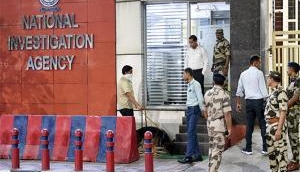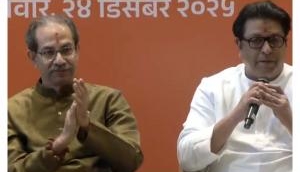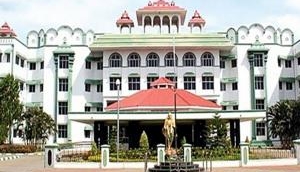
On 31 August, the homes of five MLAs and that of the health minister were set ablaze in Churachandpur district of Manipur. Eight people lost their lives and 27 have suffered serious injuries so far, after violence erupted in the area over the passage of some Bills in the Assembly.
The protests started after three Bills were passed in the Manipur Assembly, which will now regulate the entry of outsiders entering the state.
The issue
Manipur was facing regular protests by the Meitei community, which demanded regulations on the entry of outsiders to safeguard the culture and tradition of the indigenous citizens of the state.
However, the tribal community, which lives on the outskirts of the state, alleged that the Metei community's protests were prompted to ensure their dominance over other minority communities as they have also been demanding an OBC status for themselves.
Babloo Loitongbham, a human right activist from Manipur, told Catch that this allegation by the tribals was baseless as the Meitie community is already listed under the OBC category. He asserted that the fear of being dominated by Meiteis was rather superficial as the tribal community and their lands were already protected by the Schedule Tribes Act.
After the Bills were finally passed in the Assembly on 31 August, protestors from the tribal community resorted to violence and curfew was announced in the state.
What led to the protests
Protests demanding the Inner Line Permit escalated after a Std XI student was killed by tear gas shelling in June 2015.
Following the agitation, the Manipur Assembly withdrew the Manipur Regulation of Visitors, Tenants and Migrant Workers Bill on 15 July, 2015, just a few months after it was passed as the JCILPS felt it protected immigrants more than the indigenous populace.
Prior to that, the state assembly had written to the Government of India urging it to implement the ILP system in Manipur.
Loitongbham told Catch that of the three Bills passed in the Assembly, one was a new Bill which dealt with the protection of indigenous people of the state. The second Bill was amended to ensure that non-Manipuris will have to take permission from the Cabinet if they want to buy land in the state.
The third Bill, he informed, was related to the establishment of new shops and business in the state, which will now require registration.
"I think there is a lot of violence in some areas due to the presence of people from neighbouring states who are living there and they feel that they may be left out. But this is completely uncalled for as this Act does not talk about deportation," he said.
He added that efforts will be made to naturalise people coming from neighbouring states.
The way forward
When the Bills were passed in the Assembly, there was no dissent by members of the tribal community. "Perhaps people are venting their anger on these representatives for not raising the issue in the Assembly," said Loitongbham.
According to him, there are some fringe elements in the Meitei community who have tried to polarise the two communities by taking a communal tone. He hastened to add that their opinion should not be considered the opinion of the entire community.








![BJP's Kapil Mishra recreates Shankar Mahadevan’s ‘Breathless’ song to highlight Delhi pollution [WATCH] BJP's Kapil Mishra recreates Shankar Mahadevan’s ‘Breathless’ song to highlight Delhi pollution [WATCH]](https://images.catchnews.com/upload/2022/11/03/kapil-mishra_240884_300x172.png)

![Anupam Kher shares pictures of his toned body on 67th birthday [MUST SEE] Anupam Kher shares pictures of his toned body on 67th birthday [MUST SEE]](https://images.catchnews.com/upload/2022/03/07/Anupam_kher_231145_300x172.jpg)






